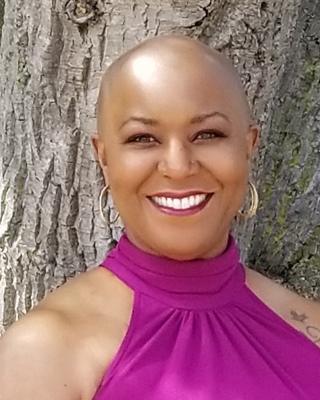
Understanding Psychiatric Care and Treatment Options
Many people seeking mental health care in Durham, North Carolina, wonder about the differences between psychiatrists and other mental health professionals, particularly whether psychiatrists provide therapy or focus solely on medication management. Understanding the role of psychiatrists and how they fit into the broader mental health care landscape can help you make informed decisions about your treatment options.
The mental health professionals featured in our Durham Therapists directory include both psychiatrists and other licensed therapists, each bringing unique expertise to mental health care. Whether you’re seeking therapy, medication management, or a combination of both, understanding what different providers offer can help you find the right professional for your specific needs and goals.
The Short Answer: Yes, Many Psychiatrists Do Provide Therapy
Traditional Psychiatric Training
Psychiatrists are medical doctors who have completed specialized training in mental health, including extensive education in psychotherapy and therapeutic techniques. Their medical training includes:
- 4 years of medical school
- 4 years of psychiatry residency with therapy training
- Extensive education in psychotherapy approaches
- Training in both individual and group therapy
- Supervised clinical experience providing therapy
- Understanding of psychodynamic, cognitive-behavioral, and other therapeutic modalities
Modern Practice Variations
However, psychiatrists’ actual practice varies significantly based on their training, interests, and practice settings:
- Some psychiatrists focus primarily on therapy and may do minimal medication management
- Others specialize in medication management and work collaboratively with therapists
- Many provide both therapy and medication management in an integrated approach
- Practice settings influence focus – hospital vs. private practice vs. community mental health
Understanding Different Models of Psychiatric Care
The Integrated Model
Some Durham psychiatrists provide comprehensive care that includes both therapy and medication management:
- Medication Evaluation and Management: Prescribing and monitoring psychiatric medications
- Psychotherapy Services: Individual, group, or family therapy sessions
- Crisis Intervention: Emergency psychiatric care and safety assessment
- Treatment Planning: Comprehensive approach to mental health treatment
- Coordination of Care: Working with other healthcare providers
The Medical Model
Other Durham psychiatrists focus primarily on the medical aspects of mental health care:
- Psychiatric Evaluation: Comprehensive assessment and diagnosis
- Medication Management: Prescribing, monitoring, and adjusting psychiatric medications
- Medical Monitoring: Tracking side effects and treatment response
- Collaborative Care: Working with therapists and other mental health professionals
- Consultation: Providing psychiatric expertise to treatment teams
The Collaborative Model
Many Durham mental health practices use a collaborative approach:
- Psychiatrists handle medication management and psychiatric evaluation
- Licensed therapists provide ongoing psychotherapy
- Regular communication between providers ensures coordinated care
- Patients benefit from specialized expertise in both areas
- More frequent therapy sessions with less frequent medication visits
Why Some Psychiatrists Focus More on Medication
Practice Economics and Efficiency
Several factors have influenced psychiatrists toward medication-focused practices:
- Insurance Reimbursement: Medication management visits are often better reimbursed per hour
- Patient Volume: Ability to see more patients with shorter medication visits
- Demand for Services: High demand for psychiatric evaluation and medication management
- Specialty Training: Unique expertise in psychopharmacology that other providers can’t offer
- Time Efficiency: Medication visits typically take 15-30 minutes vs. 45-60 minute therapy sessions
Collaborative Benefits
The collaborative model offers advantages for patients:
- More frequent therapy sessions with specialized therapists
- Expert medication management from medical doctors
- Cost-effective care with appropriate provider utilization
- Access to both medical and psychological perspectives
- Flexibility in treatment intensity and approach
Types of Therapy Psychiatrists May Provide
Psychodynamic Therapy
Many psychiatrists are trained in psychodynamic approaches:
- Exploring unconscious patterns and past experiences
- Understanding how early relationships influence current behavior
- Long-term therapy focusing on insight and personal growth
- Traditional psychiatric training often emphasizes this approach
Cognitive Behavioral Therapy (CBT)
Many psychiatrists incorporate CBT techniques:
- Identifying and changing negative thought patterns
- Behavioral interventions and homework assignments
- Short-term, goal-oriented treatment
- Evidence-based approach for many mental health conditions
Dialectical Behavior Therapy (DBT)
Some psychiatrists specialize in DBT, particularly for:
- Borderline personality disorder
- Emotion regulation difficulties
- Self-harm and suicidal behaviors
- Complex trauma and PTSD
Group Therapy
Durham psychiatrists may lead various types of groups:
- Medication education and support groups
- Process groups for insight and interpersonal learning
- Specialty groups for specific conditions (depression, anxiety, bipolar disorder)
- Skills-based groups teaching coping strategies
When to See a Psychiatrist vs. Other Therapists
Consider a Psychiatrist When You Need:
- Medication Evaluation: Wondering if medication could help your symptoms
- Medication Management: Already taking psychiatric medications that need monitoring
- Complex Mental Health Conditions: Multiple diagnoses or treatment-resistant conditions
- Severe Symptoms: Symptoms significantly impacting daily functioning
- Crisis Situations: Suicidal thoughts, psychosis, or severe mood episodes
- Medical Complications: Mental health issues complicated by medical conditions
- Diagnostic Clarity: Uncertain about diagnosis or need comprehensive psychiatric evaluation
Consider Other Therapists When You’re Seeking:
- Talk Therapy Focus: Primary interest in psychotherapy without medication
- Relationship Issues: Couples or family therapy specialization
- Specific Therapeutic Approaches: Therapists specializing in particular modalities
- Regular Therapy Sessions: Weekly or bi-weekly ongoing psychotherapy
- Personal Growth: Self-improvement and personal development goals
- Life Transitions: Adjustment issues and life changes
- Trauma Therapy: Specialized trauma-focused treatments like EMDR
Finding Psychiatrists and Therapists in Durham
Using Our Durham Therapists Directory
Our comprehensive directory includes both psychiatrists and other licensed mental health professionals, making it easy to find the right provider for your needs. When searching for mental health care, you can:
- Filter by provider type (psychiatrist, psychologist, LCSW, LCMHC, etc.)
- Search by specialty areas and treatment approaches
- Find providers who offer both therapy and medication management
- Identify collaborative practices with multiple types of providers
- Read reviews about different providers’ approaches and specialties
Psychiatrists in Our Directory
The psychiatrists featured in our Durham Therapists directory offer various services:
- Some provide comprehensive care including both therapy and medication
- Others focus on psychiatric evaluation and medication management
- Many work collaboratively with therapists in the same practice
- All are licensed physicians specializing in mental health care
- Profiles clearly indicate their approach and services offered
Reading Reviews About Psychiatric Care
Durham residents share valuable insights in reviews about psychiatrists:
- Whether the psychiatrist provides therapy or focuses on medication
- Quality of therapeutic relationship and communication
- Effectiveness of medication management
- Collaboration with other mental health providers
- Accessibility and responsiveness to patient needs
- Overall satisfaction with psychiatric care
The Evolution of Psychiatric Practice
Historical Perspective
Psychiatric practice has evolved significantly over the decades:
- 1950s-1970s: Psychiatrists primarily provided psychotherapy
- 1980s-1990s: Increased focus on biological psychiatry and medications
- 2000s-Present: Growing emphasis on evidence-based treatments and collaborative care
- Current Trends: Integration of therapy and medication, personalized medicine approaches
Current Practice Patterns
Today’s Durham psychiatrists practice in various ways:
- Some maintain traditional psychotherapy practices
- Others specialize in psychopharmacology and medication management
- Many use hybrid approaches combining both therapy and medication
- Collaborative care models are increasingly common
- Telepsychiatry and online services are expanding access
Benefits of Different Treatment Approaches
Psychiatrist-Provided Therapy Benefits
When psychiatrists provide therapy, patients may benefit from:
- Integrated Care: Seamless coordination between therapy and medication
- Medical Perspective: Understanding of how medical factors affect mental health
- Medication Adjustments: Real-time medication changes based on therapy progress
- Crisis Management: Medical training helpful in managing severe symptoms
- Comprehensive Assessment: Thorough evaluation of biological, psychological, and social factors
Collaborative Care Benefits
The collaborative model offers unique advantages:
- Specialized Expertise: Each provider focuses on their area of greatest skill
- More Therapy Time: Therapists can provide more frequent and longer sessions
- Cost Effectiveness: Appropriate use of different provider types
- Team Approach: Multiple perspectives on treatment planning
- Flexibility: Ability to adjust intensity of different types of care
Questions to Ask When Choosing Mental Health Care
Questions for Psychiatrists
When considering psychiatric care, ask:
- “Do you provide therapy sessions or primarily medication management?”
- “How often would we meet, and for how long are sessions?”
- “Do you work with therapists if I need ongoing psychotherapy?”
- “What is your approach to treatment – therapy, medication, or both?”
- “How do you coordinate care with other mental health providers?”
- “What should I expect in terms of follow-up and monitoring?”
Questions About Treatment Approach
- “What role do you see medication playing in my treatment?”
- “How do you determine if someone needs therapy, medication, or both?”
- “What therapeutic approaches do you use if you provide therapy?”
- “How do you measure progress and success in treatment?”
- “What happens if the initial treatment approach isn’t working?”
Insurance and Cost Considerations
Insurance Coverage for Psychiatric Services
Understanding coverage for different types of psychiatric care:
- Psychiatric Evaluation: Usually covered as medical service
- Medication Management: Typically covered with medical copays
- Psychiatrist-Provided Therapy: May have different coverage than therapy from other providers
- Collaborative Care: May involve multiple copays but could be more cost-effective
Cost Considerations
Financial factors to consider:
- Psychiatrist visits may have higher copays than therapy visits
- Frequency of visits affects total cost
- Some psychiatrists offer package deals for combined therapy and medication management
- Collaborative care may provide better value for intensive therapy needs
Our Top 10 Best Therapists in Durham, NC
Our curated Top 10 Best Therapists in Durham, NC list includes both psychiatrists and other mental health professionals who have demonstrated excellence in their practice. The psychiatrists on our list represent various practice models:
- Some provide comprehensive therapy and medication services
- Others excel in collaborative care and medication management
- All have been selected based on their expertise, patient reviews, and quality of care
- They represent the highest standard of psychiatric care available in Durham
- Each brings unique strengths to mental health treatment
The Top 10 list helps Durham residents identify outstanding mental health professionals, whether they’re seeking psychiatrists who provide therapy, medication management specialists, or collaborative care teams.
Making the Right Choice for Your Mental Health Care
Assessing Your Needs
Consider these factors when deciding between psychiatric care options:
- Severity of Symptoms: More severe symptoms may benefit from psychiatric evaluation
- Previous Treatment History: What has or hasn’t worked in the past
- Medication History: Current or past use of psychiatric medications
- Therapy Goals: Whether you’re primarily seeking therapy or considering medication
- Time Availability: Frequency and duration of appointments you can accommodate
- Insurance Coverage: What providers and services are covered
Starting Your Search
When beginning your search for mental health care:
- Use our directory to explore both psychiatrists and other therapists
- Read profiles carefully to understand each provider’s approach
- Check reviews from other Durham residents about their experiences
- Consider scheduling consultations with providers who seem like good fits
- Ask specific questions about their practice model and services
The Future of Psychiatric Care
Emerging Trends
Psychiatric practice continues to evolve with new developments:
- Integrated Care Models: Closer collaboration between psychiatrists and therapists
- Telepsychiatry: Online psychiatric services increasing accessibility
- Personalized Medicine: Genetic testing to guide medication choices
- Measurement-Based Care: Using standardized tools to track treatment progress
- Collaborative Care Programs: Team-based approaches in healthcare settings
Durham’s Mental Health Landscape
Durham benefits from diverse psychiatric care options:
- Academic medical centers with specialized psychiatric services
- Private practice psychiatrists offering various treatment models
- Community mental health centers with integrated care
- Collaborative practices combining psychiatrists and therapists
- Telepsychiatry options expanding access to care
For Mental Health Professionals
Join Our Durham Therapists Directory
Are you a psychiatrist or other mental health professional providing quality care to Durham residents? We welcome all licensed mental health providers to join our comprehensive directory.
Benefits of joining our directory include:
- For Psychiatrists: Clearly indicate whether you provide therapy, medication management, or both
- Showcase Your Approach: Help patients understand your practice model and services
- Connect with Appropriate Clients: Reach people seeking your specific type of care
- Build Your Reputation: Benefit from authentic patient reviews and feedback
- Collaborative Opportunities: Connect with other mental health professionals for referrals
- Top 10 Recognition: Potential inclusion in our Best Therapists list
- Community Support: Help Durham residents access quality mental health care
Whether you’re a psychiatrist who provides comprehensive therapy and medication services, focuses on medication management, or works in collaborative care models, join our directory today to help Durham residents find the right mental health care for their needs.
Supporting Durham’s Mental Health Community
Sharing Your Experience with Psychiatric Care
After receiving psychiatric care in Durham, consider leaving a review that helps other residents understand what to expect. Your feedback can address:
- Whether the psychiatrist provided therapy, medication management, or both
- Quality of the therapeutic relationship and communication
- Effectiveness of treatment approach and outcomes achieved
- Coordination with other mental health providers if applicable
- Accessibility and responsiveness to patient needs
- Overall satisfaction with psychiatric care received
Review Our Directory Service
We also welcome feedback about how our Durham Therapists directory helped you understand different types of mental health providers and find the right psychiatric care. Your input helps us improve our service and better serve Durham’s mental health community.
Conclusion
Psychiatrists do provide therapy, but their practice models vary significantly based on training, interests, and practice settings. Some Durham psychiatrists offer comprehensive care that includes both therapy and medication management, while others focus primarily on psychiatric evaluation and medication management while collaborating with other therapists for psychotherapy services.
Understanding these different approaches can help you make informed decisions about your mental health care. Whether you need medication evaluation, ongoing therapy, or a combination of both, Durham offers excellent options through both psychiatrist-provided services and collaborative care models.
The mental health professionals featured in our Durham Therapists directory include both psychiatrists and other licensed therapists, each clearly indicating their services and approach. Our Top 10 Best Therapists in Durham, NC list includes outstanding providers from all backgrounds who can help you achieve your mental health goals.
The key is finding the right fit for your specific needs, preferences, and treatment goals. Use our directory to explore different providers, read authentic reviews from other Durham residents, and make informed decisions about your mental health care. Whether you choose a psychiatrist who provides therapy, a collaborative care model, or work with other types of therapists, quality mental health care is available in Durham.
Don’t let confusion about different types of providers prevent you from seeking the help you need. Start by exploring our directory, understanding your options, and taking the first step toward better mental health. The right provider and treatment approach are waiting to support your journey toward wellness.
Ready to explore psychiatric care and therapy options in Durham? Browse our comprehensive directory, discover our Top 10 Best Therapists list, and find the mental health professional who can provide the right combination of services for your needs. Your mental health journey starts with understanding your options.

